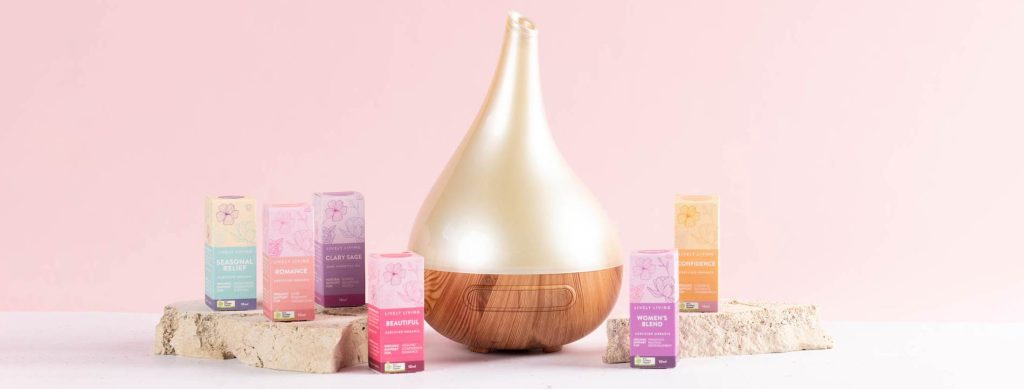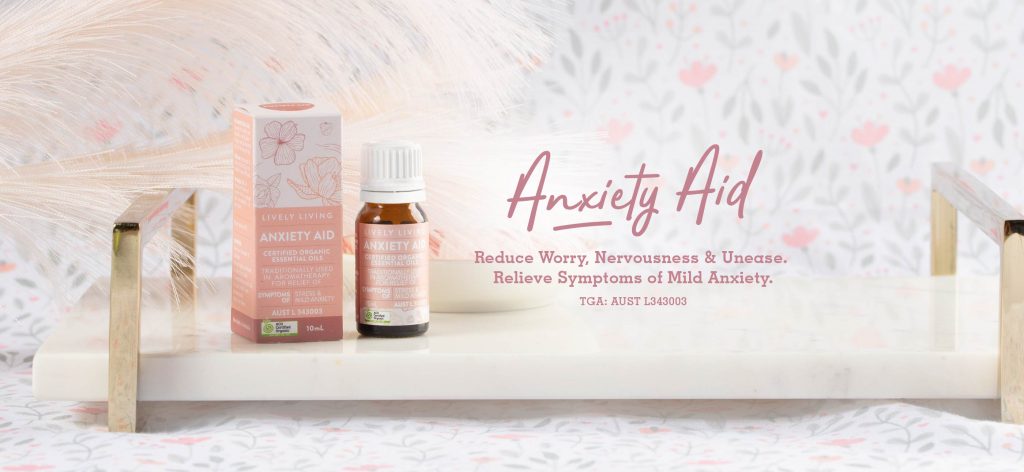Using Essential Oils to manage Anxiety and Depression
Ever felt like you're on a rollercoaster ride, but it's not thrilling? Instead, the twists and turns make your heart race with anxiety, or plunge you into depths of depression. You yearn for some respite from these overwhelming emotions.
Well, what if I told you there is an ancient solution that might offer help?
This isn't about any magic potion or pill. It's all about using essential oils to manage anxiety and depression relief. From lavender's calming floral scent to valerian oil’s sleep-inducing aroma; Mother Nature offers a treasure trove of soothing scents that can potentially soothe our stressed souls.
Rather than relying on pills for quick relief, essential oils can target specific areas of the brain related to mood regulation. That's where essential oils step in. They work differently by targeting specific parts of our brain linked with mood control.
Contents
- Understanding Anxiety and Depression
- How Essential Oils Work for Anxiety and Depression
- Scientific Evidence Supporting Use of Essential Oils for Mental Health
- Essential Oils for Anxiety and Depression
- FAQs in Relation to Using Essential Oils to Manage Anxiety and Depression
- Conclusion
Understanding Anxiety and Depression
Anxiety and depression, two closely related mental health conditions, can have a profound impact on an individual's life. As a natural remedy for these ailments, essential oils have been used since ancient times to help manage symptoms.
Studies suggest about 43% of people dealing with anxiety or stress turn towards alternative therapy such as aromatherapy for relief. It's not unexpected that the utilization of essential oils to manage uneasiness and sadness has become increasingly well known as time passes.
The Nature of Anxiety
Anxiety is more than just feeling stressed or worried; it's when these feelings persist without any particular reason or cause excessive reactions. This condition may interfere with daily activities leading individuals to seek methods like diffusing essential oil blends designed specifically to calm anxiety levels.
Symptoms vary but common physical signs include heart palpitations, shortness of breath, headaches while psychological symptoms could be constant worrying or obsessive thinking. Often the aroma from certain essential oils triggers chemical responses in our brain helping us relax better by lowering these anxiety levels.
Depression: A Deeper Look
Akin to a black cloud hanging overhead, depression tends not only darken one’s mood but also affects their ability think clearly and enjoy life fully. Similar to how some professionals recommend essential oils for treating anxious feelings - they also advocate them as complementary therapy against depressive episodes due its calming properties on both mind body alike . Soothing scents lavender aromatherapy example can significantly aid lifting spirits enhancing overall wellbeing effectively.
This chronic illness includes persistent sadness loss interest hobbies activities once enjoyed Additionally physical symptoms such lack energy appetite sleep disturbances commonly observed amongst individuals struggling with depression.

Role of Essential Oils in Managing Anxiety and Depression
Back in the day, essential oils were key for all sorts of health perks, like kicking anxiety and depression to the curb. Nowadays, healthcare pros still give them a thumbs up as an extra tool to help handle these tough feelings. Certain blends with that floral kick can even work wonders on your mood.
Essential oils, used since ancient times, offer a natural way to manage anxiety and depression symptoms. These conditions affect daily life deeply but using specific oil blends can help calm the mind and body alike.
How Essential Oils Work for Anxiety and Depression
Ever wondered how essential oils help to soothe your mind? It's all about the body's chemical responses, olfactory nerves, and smell receptors. When you take in an essential oil combination, it stirs the parts of your brain associated with controlling feelings, liberating specific substances like serotonin and dopamine that help lower anxiety levels and improve state of mind.
This interaction prompts the release of certain chemicals like serotonin and dopamine which helps reduce anxiety levels and boost mood. That’s why aromatherapy is such a powerful tool when dealing with emotional challenges like depression or chronic stress.
The Role of Quality in Essential Oils
Quality matters greatly when using essential oils for mental health benefits. Poorly sourced or adulterated oils might not only lack therapeutic properties but could also cause adverse reactions.
Purchasing quality essential oils from reputable companies ensures they are derived directly from plants via steam distillation or cold pressing - preserving their full range of plant extracts without added synthetic compounds. High-quality common essential oils include lavender known for its calming effect, ylang-ylang which can help reduce nervous tension, chamomile promoting relaxation among others.
Studies have shown that higher-grade essentials interact more effectively with our body's chemical processes leading to better results whether diffused through the air or applied topically mixed with carrier oil such as coconut oil or almond oil (always remember to perform a patch test first.).
Lavender Aromatherapy: More than Just a Floral Scent
Lavender isn't just popular because of its sweet floral scent; this potent herb has been used since ancient times as an anti-anxiety remedy. Lavender aromatherapy has been shown to provide a calming effect on the nervous system, making it an effective remedy for anxiety and depression.
Studies reveal that a whiff of lavender essential oil can kick-start our olfactory nerve. Want to learn more? Check out this research.
Essential oils, like lavender and chamomile, can stimulate the release of mood-boosting chemicals in your brain to help manage anxiety and depression. However, quality is key. Make sure you're getting pure certified organic essential oils from reliable sources or Lively Living for effective results,
Scientific Evidence Supporting Use of Essential Oils for Mental Health
You might be wondering, do essential oils work? Studies have shown that certain scents can trigger powerful emotional responses in the brain. Our olfactory nerve is connected to the limbic system, which governs emotional responses in our brains.
The anti-anxiety effects of specific essential oils are backed by science too. For instance, lavender aromatherapy has been proven effective in calming nerves and promoting sleep thanks to its mild sedative properties.
Lively Living released a new Mental Health Organic Essential Oil in March 20024 and has quickly become one of our top sellers, evident how Mental Health Matters.
The Power of Lavender
Lavender oil’s floral scent is more than just pleasant; it also carries health benefits. A 2016 study found that students with sleep disturbances who breathed in this soothing aroma had improved cycles. In fact, they reported better quality rest and felt more refreshed upon waking up. Organic Lavender from Lively Living will assist to relive anxiety.
Another notable finding, when blood pressure was monitored during an anxiety-inducing situation, those who were exposed to lavender showed less increase compared to those without any exposure at all – indicating its potential role as a natural way ease anxiety levels.
All these scientific evidences not only help us understand how essential oils work, but also give us confidence in using them to manage symptoms of anxiety and depression. But remember: quality matters.

The Role of Quality in Essential Oils
Not all oils are created equal. It's crucial to choose therapeutic-grade products from reputable companies for effective results.
For a guaranteed quality product, seek out labels that state 'certified organic ' to ensure you're not getting fillers or synthetic ingredients which could cause adverse reactions. These usually indicate the oil is free from fillers or synthetic ingredients which could potentially cause allergic reactions.
Think about using essential oil aromatherapy as a sidekick for handling your mental health worries. So, when stress starts sneaking in next time,
Research supports the use of essential oils like lavender and Frakincense for managing anxiety and depression. These scents can trigger positive emotional responses in our brain, providing calming effects. But remember to choose high-quality, therapeutic-grade products from trusted sources for best results.
Essential Oils for Anxiety and Depression
If you're seeking a natural remedy to help manage anxiety or depression, essential oils may be the ticket. They've been used since ancient times as a complementary therapy to alleviate both physical symptoms and emotional distress.
The Calming Effects of Chamomile
Let's start with chamomile oil. Renowned for its soothing floral scent, this common essential oil has long been associated with relaxation. But it does more than just smell nice - studies suggest that chamomile can actually calm anxiety and improve sleep quality source.
Another potent player in the fight against stress is lavender oil. It's one of those versatile oils that doesn't only make your living room smell like a spa but also packs health benefits when diffused or applied topically (with a carrier oil such as coconut or almond). The evidence? A 2016 study showed an improvement in college students' sleep cycle after inhaling lavender source. Another interesting fact about lavender aromatherapy: It helped reduce blood pressure in short-term treatment among patients suffering from ischemic heart disease source.
We can't forget ylang ylang either; its sweet aroma has been known to relieve stress while promoting positive emotions - making it another solid choice if you're looking at using essential oils safely to combat anxiety levels.
Mixing Essential Oils
Boost your experience with a blend of essential oils. Research shows that self-massage using a combination of oils like rose and chamomile can help reduce pain and anxiety source. Don't forget to consider Valerian essential oil, it's celebrated for its soothing effects akin to the medication diazepam source.
FAQs in Relation to Using Essential Oils to Manage Anxiety and Depression
What are the best essential oils for anxiety and depression?
Lavender, ylang ylang, chamomile, clary sage, and frankincense are some of the top picks for managing both conditions. Use Lively Living Organic Anxiety Aid, Stress Relief blends.
Which essential oils are best for anxiety?
Oils like lavender, vetiver, and valerian can really help soothe your nerves when you're feeling anxious. They can also promote sleep.
What effects do essential oils have on anxiety?
Essential oils work by stimulating smell receptors which then communicate with parts of your brain that regulate emotions. This helps ease anxiety symptoms.
What essential oils are good for mental balance?
To maintain mental equilibrium consider geranium oil or patchouli oil. Both have calming properties that promote emotional balance.
Conclusion
Stepping into the world of essential oils is like opening a door to nature's pharmacy. From calming lavender to sleep-inducing valerian, using essential oils can offer an effective complementary therapy for managing anxiety and depression.
We've dived deep into understanding how these fragrant extracts work on our bodies' chemical responses, thanks to olfactory nerves and smell receptors. We also discovered the importance of quality when it comes to choosing your oil blend.
The power of science-backed lavender aromatherapy isn't just hearsay; studies validate its potential in easing stress levels. And it doesn't stop at lavender - chamomile, ylang ylang, clary sage all play their roles too!
Remember though: before you start massaging diluted essential oil onto your skin always do a patch test first. Lively Livings large range of diffusers, makes it easy to enjoy the power of aromatherapy.
In this journey towards better mental health through using essential oils, let’s not forget they are tools – one part of your broader strategy that includes lifestyle changes and possibly professional help as well.












